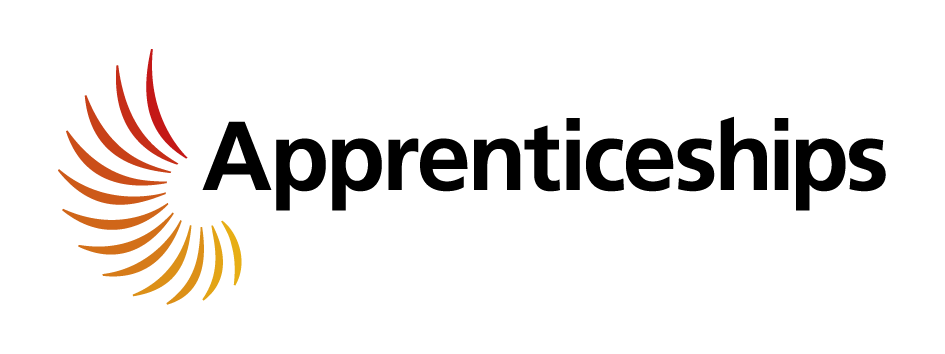What is an Apprenticeship?

An apprenticeship is a job with an associated training and career development programme which lasts for a minimum of 15 months in length. The exact duration will be outlined on the relevant apprenticeship standard and will depend on factors such as contracted hours and prior learning. Some higher-level apprenticeships can be in excess of five years.
Apprenticeship Levels:
|
Name |
Level |
Equivalent educational level |
|
Intermediate |
2 |
5 GCSE passes |
|
Advanced |
3 |
2 A Level passes |
|
Higher |
4, 5, 6 and 7 |
Foundation degree and above |
|
Degree |
6 and 7 |
Bachelor’s or master’s degree |
Apprenticeships can be full-time or part-time and are suitable for anyone over the age of 16 who has an employment contract for the duration of the apprenticeship.
The purpose of an Apprenticeship is to help people to gain new knowledge, skills and behaviours so they can improve their competency in an occupational role. They can be used to help new staff develop in their roles and offer existing staff career development qualifications. The apprenticeship standard chosen must relate to the job role of the person who will be training.
Apprentices will:
- Spend at least 6hrs per week of their employed time completing learning & development activities and implementing their new skill in the workplace.
- Gain official certification of skills and qualifications often with accreditation from professional awarding bodies or professional membership.
English and maths:
The UK government have made a commitment to ensure that every adult receives training up to Level 2 in English and maths. As such, if the apprentice does not already hold a GCSE A-C (4-9) or Adult Functional Skill at Level 2 in these subjects, they will be required to also complete Adult Literacy and/or numeracy whilst on the programme. If the apprentice already holds maths or English at this level, they will be exempt from this component.
The Apprenticeship Journey
All Apprenticeships at all levels and durations follow the same format:
- Initial Assessment: The Staff Apprenticeship Lead will ensure that Queen Mary University, as an employer, is compliant with Apprenticeship funding rules and that members of staff are enrolled on an appropriate programme of development. This will include an initial assessment to determine eligibility.
- On-Programme Training or the 'practical period': Once accepted onto an apprenticeship programme, the induction and on-programme training will commence. It might involve regular taught day-release to college, workshops at a private training provider or online learning supplemented with workplace visits and reviews.
- Off the Job Training: Off-the-job training is a distinctive feature of an apprenticeship and as such, 6hrs per week (pro rata) must be spent on learning and development activities relevant to the apprenticeship. More information about this can be found in the off-the-job section of this website.
- Triparte Reviews: Throughout the apprenticeship, the training provider, line manager and apprentice meet regularly to discuss progress and map evidence of the new knowledge, skills and behaviours gained in the workplace. These visits are a requirement of the programme and ensure that the learning is relevant to the day-to-day role and responsibilities.
- Gateway: At the end of the practical period and once any accredited qualifications are passed, usually three months from the end of the programme, the line manager and training provider will be asked to assess the apprentice’s readiness for End Point Assessment. This is simply to say that in their best judgement, the apprentice is ready to be considered competent in the profession.
- End Point Assessment: This is the final component of the programme. The apprentice will complete the final assessments with an impartial End Point Assessment Organisation.
Benefits of an Apprenticeship
|
For the University |
For the Apprentices |
|
|


